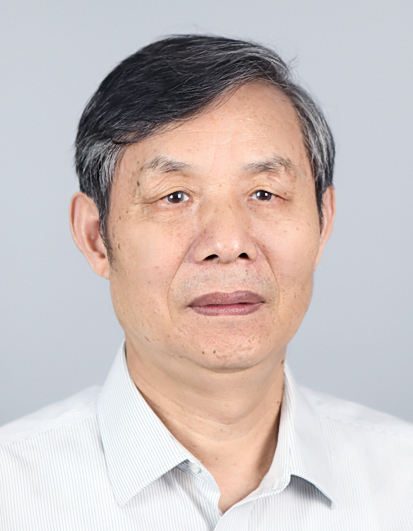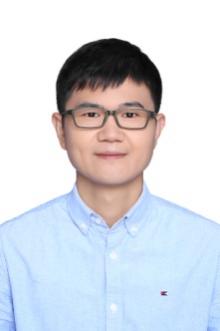Department of Clinical Pharmacology was established in 2003,has 12 faculty members, including 3 professors, 4 associate professors (3 doctoral supervisors and 4 master's supervisors), 9 doctoral degree holders, and 6 overseas postdoctoral and visiting scholars. Currently, we are mainly responsible for teaching undergraduate courses including Pharmacology, Pharmacotoxicology and Introduction to Pharmacy, and graduate courses such as Drug Targets and Biotechnology.
Research areas and topics: drug target and innovative drug research in neuropsychiatric diseases such as Stroke, Depression, Anxiety, Alzheimer's disease, Epilepsy, Pain and so on. Over the years, we have undertaken a total of 25 national projects (including 2 key projects of the National Natural Science Foundation of China, 1 outstanding youth project, 1 excellent youth project, 2 projects of the National Key Research and Development Program, and 1 scientific and technological special project of the National "Creation of Major New Drugs"), and 9 projects at the provincial level (including 2 projects of the Distinguished Youth Fund of Jiangsu Province).
The main original research results: the design and development of a new fast-acting antidepressant, this six-year research result is considered to be a major theoretical breakthrough in antidepressant research in the 60 years since the discovery of the classical antidepressant fluoxetine, and is expected to overcome the shortcomings of the existing antidepressant drugs, and develop a new fast-acting antidepressant drug. Design and development of a novel fast-acting antidepressant, discovery of a new target of drug therapy for stroke, nNOS-PSD-95 coupling, and obtaining the small molecule lead drug ZL-006, which has better cerebral ischemic protection and fewer side-effects. proposing a second time window for stroke treatment, and discovery of the key regulatory molecule HDAC2. demonstrating that nNOS-CAPON coupling leads to anxiety, and that nNOS-PSD-95 coupling is the most effective antidepressant for stroke. Designed and synthesized small molecule candidates for novel anti-anxiety drugs against this target. Discovered that hippocampal nNOS mediates chronic stress-induced hyperactivity of the HPA axis, which can be a new target for antidepressant drug development. Elucidated the PVT-mPFC neural loop mediating chronic pain-induced anxiety and downstream molecular mechanisms. Developing a set of intelligent antidepressant drug electronic screening instrument. The research results have been published in Science, Nature Medicine, Nature Protocols, Nature Communications, JCI, PNAS, Journal of Neuroscience, Stem Cell Reports, and other internationally recognized academic journals.
Faculty
Name: Dong-Ya Zhu, Professor and Doctoral Supervisor.
Research fields:
Prof. Zhu’s team mainly engaged in molecular regulation of cerebral ischemic injury and repair and affective disorder diseases.
E-mail:dyzhu@njmu.edu.cn

Name:Qi-Gang Zhou, Professor and Doctoral Supervisor, Deputy Director of the Jiangsu Gene Drug Technology Center, Deputy Director of the Drug Target and New Drug Development Center of Nanjing Medical University, and Top Ten Science and Technology Stars of Nanjing City. Has successively received funding from the National and Jiangsu Provincial Outstanding Youth Fund for Talent Projects.
Research fields:
Prof. Zhou’s team mainly engaged in the discovery of disease targets such as depression, anxiety, epilepsy, and aging, as well as the development of new drugs. The discovery of new targets for antidepressants can overcome the shortcomings of existing monoamine targets, and the research has received high praise from international peers. It is believed that this is an important theoretical breakthrough in the research of new targets for antidepressants in the past 60 years since the proposal of the "monoamine hypothesis". The research results have been published in top international journals such as Science, Molecular Psychiatry, and J Clin Invest. It has been recognized as a highlight research by Science and has received special reviews in journals such as Nat Rev Drug Discov. The related research has won awards such as "Outstanding Progress in Chinese Science in 2022", "Major Progress in Chinese Neuroscience in 2022", "Important Medical Progress in China in 2022", and the First Prize in Jiangsu Province Science and Technology. Selected as an outstanding subject leader of the "Blue and Blue Project" in Jiangsu Province, and led 6 other national level projects, including the major project of "Brain Science and Brain like Research" of the Ministry of Science and Technology Innovation 2030.
Discovering new principles and technologies for accurately detecting depressive symptoms in mice, overcoming the difficulty of evaluating depressive symptoms in rodent mice, and ensuring the accuracy of pathological mechanism research and efficacy evaluation of depression. The research results have been published in journals such as Nature Proteins and Pharmaceutical Research, and have been rated as highly cited papers by Web of Science. This new method has achieved conversion, The electronic equipment produced has obtained certification from the national testing department and has entered the market; PCT patents are entering the stage in countries such as the United States.
E-mail:qigangzhou@njmu.edu.cn

Name:Chun-Xia Luo, Ph.D., Professor, Doctoral supervisor
Research fields:
Prof. Luo’s team is engaged in the animal study of neurobiological pathogenesis of diseases of central nervous system such as stroke, depression and anxiety, aiming to discover the molecular and circuit mechanisms underlying these diseases and find the potential drug targets for clinic treatment. Using optogenetics, chemogenetics, electrical recordings, morphological analyses, biochemical assays and behavioral tests, they have recently demonstrated a pPVT-vmPFC circuit mediating chronic pain-induced anxiety and the contribution of NAc nNOS to chronic social defeat stress-induced depression. Their ongoing researches focus on the role of Best1 channel in ischemic injury and recovery after stroke. Their work is published in SCI journals such as Nat Commun, Acta Pharm Sin B, and J Neurosci.
E-mail:chunxialuo@njmu.edu.cn

Name: Ai-xia Zhang, Ph.D. Associate professor
RESEARCH FIELDS: Tumor microenvironment(invasion, metastasis and angiogenesis)
Email:aixia.zhang@njmu.edu.cn

Name: Lulu Zhang, Associate professor
Research fields:The role of drug metabolism enzymes and transporters in the neuropsychiatric network and their impact on clinical medication.
Email:lulu0219@njmu.edu.cn

Name: Yu-Hui Lin, Ph.D.,Associate professor
Research fields:Stroke recovery, including (I) uncover the molecular and neural circuit mechanisms underlying stroke, (II) design novel drugs based on the potential targets, and (III) utilize novel techniques to overcome deficits of stroke.
E-mail:yuhuilin@njmu.edu.cn

Name:Yu Zhang,Associate professor
Research fields:Neuropharmacology; Neurodegenerative diseases; Drug target discovery
E-mail:zhangyu@njmu.edu.cn
